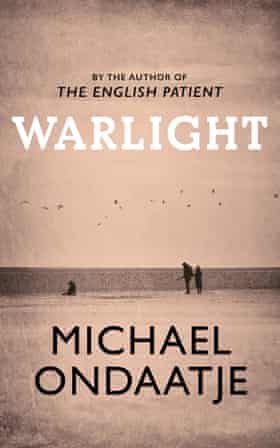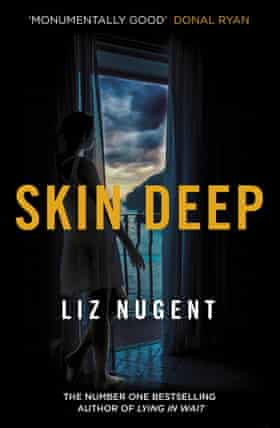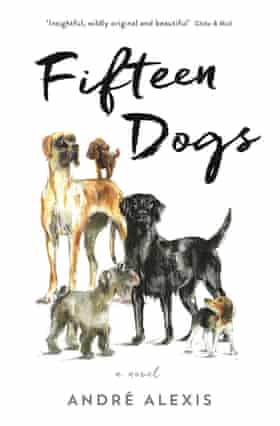 |
| Jon McGregor |
Jon McGregor
People always say not to judge a book by its cover, but people are wrong. Ashleigh Young’s collection of smart, funny, insightful and unexpected essays, Can You Tolerate This? (Bloomsbury), has a bright yellow cover, making it perfect summer reading. I love it. I’ve been telling people about Lucy Wood’s short stories ever since her debut collection came out a few years ago; she’s back with another collection, The Sing of the Shore (4th Estate), and she’s better than ever. Finally, Melissa Harrison’s forthcoming All Among the Barley (Bloomsbury) is an astonishingly good evocation of rural England in the 1930s, complete with creeping fascism and the subjugation of women. It’s subtle and mesmerising and brilliantly detailed, and I’m going to lie down in a meadow and read it all over again.
Pankaj Mishra
Fiction in English from Pakistan has redeemed its promise with dazzling consistency. Mohammed Hanif’s Red Birds (Bloomsbury) is a fresh marvel, describing with cool wit and steely yet tender intelligence the interlinked fates of antagonists in a forgotten war-scape – and the complicity of our own sheltered lives in remote conflicts. Anna Tsing’s The Mushroom at the End of the World (Princeton) is a poetic and remarkably fertile exploration of the relationship between human beings and the natural environment, and what can still be done to stem its rapid deterioration.
The term neoliberalism provokes much choleric denial. But Quinn Slobodian’s Globalists: The End of Empire and the Birth of Neoliberalism (Harvard) decisively establishes it as a coherent project, tracing it back to the political and intellectual synergies of the 1920s. Michelle Dean’s Sharp (Fleet), a portrait of 10 female writers and thinkers, is a bracing tribute to the life of the iconoclastic mind: a reminder, in our age of flashy hot takes, of the matchless power of sustained and elegant argument.
Blake Morrison

Kept from the world by a crazed fundamentalist father, cowed herbalist mother and violent misogynist brother, it’s a miracle Tara Westover escaped her childhood in rural Idaho. Her memoir Educated (Hutchinson) brilliantly recounts her journey towards knowledge and enlightenment; bravely, too – her family are still alive. With Rachel Cusk as with Karl Ove Knausgaard, you wonder what makes you keep turning the pages. But while he’s confessional, her narrator Faye lets other characters do the talking, giving little of herself away; Kudos completes a remarkable trilogy. The crepuscular, dreamlike, post-1945 London that Michael Ondaatje invents in his novel Warlight (Cape) continues to haunt you long after the plot itself.
Andrew Motion
Three Poems by Hannah Sullivan is the best first collection I’ve read for a long time: moving, technically adroit, clever in all the right ways, and full of brilliant small-scale effects as well as large achievements. Angela Leighton’s Hearing Things (Harvard) is as good as her previous book on poetic form – which is to say it’s terrific – and illuminates a great deal about the sound effects of poetry that cannot be disentangled from its page-sense. Rachel Cusk’s Kudos brings her enthralling trilogy to a well-judged conclusion, at once rounded and open.
Sarah Perry
Now that Terry Pratchett is gone, Stephen King is one of the only authors I buy in hardback on publication day. His latest, The Outsider (Hodder), is both a detective and a horror novel, and it gripped me to the point of checking under the bed before I went to sleep. It reminded me of what it was like to lie reading by torchlight late at night, when camping in the summer.
I’ve never been much of a reader of contemporary poetry, but I have been seduced by some of the brilliant young poets writing now, of whom Amy Key is perhaps my favourite. Her new collection, Isn’t Forever (Bloodaxe), is playful, surreal and enchanting but also rooted in brutal emotional honesty. She is writer of a rare and strange magic.
I am lucky enough to have an advance proof of Mrs Gaskell and Me, the new book from the brilliantly gifted Nell Stevens: she describes it as a love letter to “her own very special, dear friend”, Mrs Gaskell, and I have it patiently waiting on my desk.
Michael Pollan
On my bedside at the moment: Go, Went, Gone (Granta, translated by Susan Bernofsky), a novel about the refugee crisis in Germany by Jenny Erpenbeck that is not only timely but masterful; Matt Walker’s illuminating review of the science of sleep and how we’re all doing it wrong: Why We Sleep (Allen Lane); The Overstory (Heinemann), Richard Powers’ weird and wonderful novel about the intricate relationships among trees and humans; and Carlo Rovelli’s mindbending The Order of Time.
Ian Rankin

Liz Nugent’s Skin Deep (Penguin) is the perfect holiday read for those who like their escapism on the darker side. If Patricia Highsmith were Irish she might well have come up with this tale of a scarred woman who taints all she touches while remaining as charismatic as she is enigmatic.
In The Smiling Man (Doubleday) Joseph Knox pulls off the “difficult second novel” with ease and considerable style. Labyrinthine Mancunian noir with the obligatory battered but dogged detective.
Ambrose Parry, The Way of All Flesh isn’t published until late-August, but it’s a rip-roaring tale of murder amid the medical experiments of 19th-century Edinburgh. The book brings both city and period to colourful life and is a joy to read. It’s a collaboration between seasoned novelist Chris Brookmyre and his wife, consultant anaesthetist Marisa Haetzman.
Irish lawyer Steve Cavanagh writes excellent courtroom thrillers set in the US. His latest, Thirteen (Orion), sees him at the top of his game. It features a serial killer who’s sitting on a jury. Terrific premise, and the resulting story doesn’t disappoint.
Sally Rooney
I recently read Vivek Shanbhag’s Ghachar Ghochar (Faber, translated by Srinath Perur), a perfectly formed short novel about a family in India undergoing a rapid change in fortune. Published in translation last year, it’s an admirably slim book – you could read it in one sitting – and for me it conjured up a whole world.
I’d also recommend Sayaka Murata’s Convenience Store Woman (Portobello, translated by Ginny Tapley Takemori), an exhilaratingly weird and funny Japanese novel about a long-term convenience store employee. Unsettling and totally unpredictable – my copy is now heavily underlined.
Finally, I don’t think I’ll ever forget the day I spent reading Olivia Laing’s Crudo (Picador). I couldn’t put it down, and then it overwhelmed me so much I had to put it down, and then I had to pick it back up again. A beautiful, strange, intelligent novel.
Katherine Rundell

My favourite book for adults this year, by some margin, has been Fifteen Dogs (Serpent’s Tail) by André Alexis. It opens with two gods having a quiet drink at The Wheat Sheaf in Toronto and debating whether, if animals had human intelligence, they would be only as unhappy, or more unhappy, than humans. It’s unhinged, wise, sharp, witty and daring. I’ve also fallen in love with Rachel Cusk’s Outline trilogy; her work is staggering.
In the world of children’s books, I can’t wait to read Hilary McKay’s The Skylarks’ War (Macmillan), set in the approaching shadow of the first world war. McKay couples warmth and grace with wry humour like nobody else out there.
Salman Rushdie
My recent (re-)reading includes Cervantes’ Don Quixote, Vladimir Nabokov’s Lolita and Speak, Memory, Ralph Ellison’s Invisible Man, and Thomas Mann’s The Magic Mountain, all books that don’t need me to recommend them. I have, however, immensely enjoyed David Grossman’s A Horse Walks into a Bar (Cape) for its pitch-perfect black comedy and Jeet Thayil’s The Book of Chocolate Saints (Faber), easily the most original and formally inventive novel to come out of India in years.


No comments:
Post a Comment